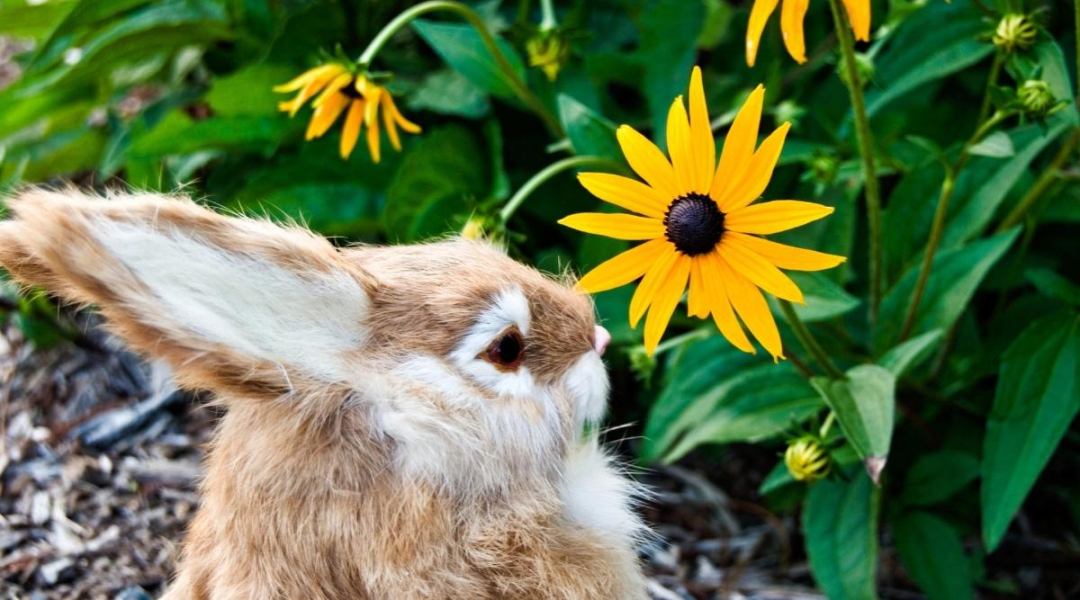Do Rabbits Eat Black Eyed Susan?
Black Eyed Susan is a popular perennial flower that can be found in many gardens and landscapes. Its vibrant yellow petals with a dark brown center make it a visually appealing choice for gardeners. However, if you have rabbits in your area, you may wonder if they will be attracted to this beautiful flower and if it is safe to plant it in your garden. In this article, we will explore whether rabbits eat Black Eyed Susan and provide you with some useful information.

The Rabbit Diet
Rabbits are known to be herbivores, meaning they primarily eat plants. Their diet mainly consists of grasses, weeds, leaves, flowers, fruits, and vegetables. However, their preferences may vary depending on the availability of food in their environment.
Are Black Eyed Susan Flowers Safe for Rabbits?
Fortunately, rabbits generally do not find Black Eyed Susan flowers particularly appealing. The taste and texture of the petals and foliage are usually not attractive to them. Rabbits usually prefer softer leaves and tastier flowers, such as clover or pansies. However, this may not be the case for all rabbits, as individual preferences can vary.
It is important to note that while Black Eyed Susan flowers are not toxic to rabbits, some parts of the plant, such as the stems and leaves, contain compounds that can cause mild gastrointestinal upset if ingested in large quantities. Therefore, it is advisable to limit the rabbit’s access to the plant.
Preventing Rabbit Damage to Black Eyed Susan
If you have rabbits in your area and want to protect your Black Eyed Susan flowers from being damaged, there are a few preventive measures you can take:
- Physical barriers: Installing a fence or using wire mesh around your garden can help keep rabbits out. Ensure the fence is buried at least six inches deep to prevent rabbits from burrowing underneath.
- Natural deterrents: Some plants, such as marigolds or lavender, have scents that rabbits find unpleasant. Planting these around your Black Eyed Susan flowers can act as a natural deterrent.
- Repellents: Commercially available rabbit repellents can be effective in deterring rabbits from your garden. These repellents typically contain substances that emit odors that rabbits find offensive.
- Companion planting: Growing plants that rabbits dislike, such as daffodils or garlic, alongside your Black Eyed Susan flowers can help deter them from approaching your garden.
FAQs
1. Can rabbits eat Black Eyed Susan seeds?
No, rabbits do not typically eat Black Eyed Susan seeds. They are more likely to consume the leaves and flowers if they find them attractive. However, it is important to limit their access to any part of the plant to avoid potential gastrointestinal issues.
2. Are rabbits attracted to Black Eyed Susan flowers?
While rabbits may occasionally nibble on Black Eyed Susan flowers, they generally do not find them appealing. Rabbits tend to prefer other types of plants with softer leaves and tastier flowers.
3. Are Black Eyed Susan flowers toxic to rabbits?
No, Black Eyed Susan flowers are not toxic to rabbits. However, the stems and leaves contain compounds that can cause mild gastrointestinal upset if ingested in large quantities. It is best to limit the rabbit’s access to the plant and provide them with more suitable food options.
4. How can I protect my Black Eyed Susan flowers from rabbits?
There are several methods to prevent rabbit damage to your Black Eyed Susan flowers. These include installing physical barriers, using natural deterrents or repellents, and practicing companion planting with plants that rabbits dislike.
In conclusion, while rabbits may occasionally nibble on Black Eyed Susan flowers, they generally do not find them appealing. The plant is not toxic to rabbits, but it is advisable to limit their access to the stems and leaves. Taking preventive measures, such as installing physical barriers or using natural deterrents, can help protect your Black Eyed Susan flowers from rabbit damage. By implementing these strategies, you can enjoy the beauty of these flowers in your garden without worrying about them being devoured by rabbits.
Related Articles…
Copyright Notice:
All images on this website are obtained from the internet and remain copyrighted to their original owners. If you hold copyright to any image and want it taken down, please reach us.